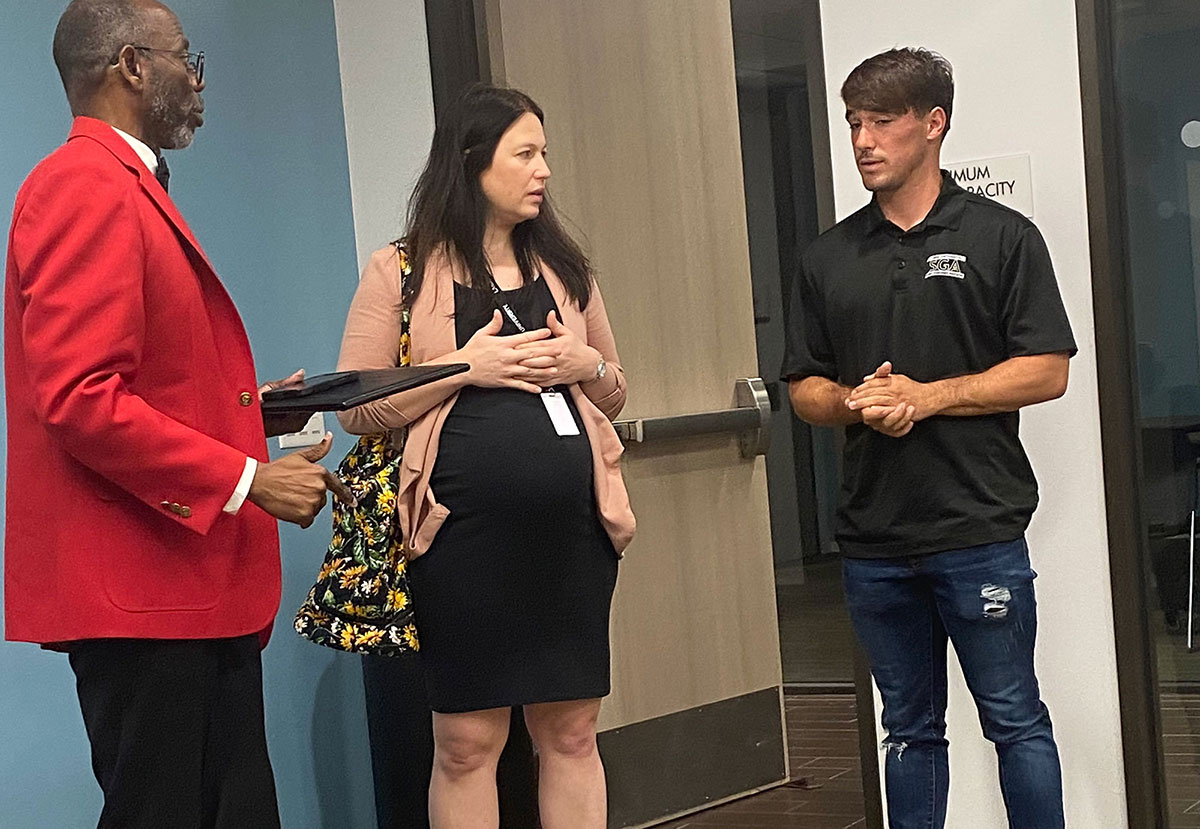
In 2023, the Texas Legislature passed Senate Bill 17 which went into effect Jan. 1. With this new law, universities across the state of Texas are not permitted to have activities or buildings which involve diversity, equity, or inclusion activities as the primary focus. It also excludes employees from hiring candidates based on their ethnicity, gender, or sexual orientation.
At the Student Government Association meeting, Feb. 20, Emily Ardolino, Associate General Counsel of the Texas State University System, spoke to students about how the bill will change certain aspects of campus and its effect on diversity, equity and inclusion programs.
“It’s a pretty new and novel law,” Ardolino said. “There’s not really anything that quite looks like this. And so, a lot of the work that we have done is really reviewing the statute and doing our best to interpret it, and then make sure that our institutions are in compliance.
“The primary thing it prohibits is institutions from having DEI offices. Not necessarily all of the activities that you would associate with it are actually described in (the bill), so a lot of that effort has been identifying which of these things have been formally done by the office, and either eliminating or revising those programs.”
Ardolino said there are some exceptions to restrictions. For example, the Title IX Department, is allowed to have training for sexual and racial discrimination, which they are required by law to have. “Except for those that are federal law, there still are a number of training and programs in the equal opportunity/employment opportunity context, where we have federal and state obligations to do certain training or have certain programs or policies or procedures,” she said. “This (law) is basically saying that institutions may not provide these things, unless they are required by federal and state law.”
Under SB17, Lamar University can no longer establish or maintain an institution which serves as a Diversity, Equity, & Inclusion Office.
“They also cannot hire or assign an employee, or contract with a third party to perform the duties of a DEI office,” Ardolino said. “(The school is) prohibited from compelling a diversity statement or giving preferential consideration. The legislature did not define what a diversity statement is, but our best interpretation that we have right now, is that it refers to a portion of an application for employment. That is a statement that addresses an individual’s experience with diversity or certain diversity challenges. SB17 says universities cannot require applicants to submit those statements, and if they do, they have to disregard them.”
The bill also has exemptions for some other university features, which include academic course instruction and academic research or creative work.
“Registered or recognized student organizations and programs that are better sponsored and directed by student organizations are exempt, (as are) guest speakers and performers who are on short-term engagement,” Ardolino said. “The assumption is our policies, practices, programs and activities are designed to enhance student academic achievement or postgraduate outcomes, so long as they are implemented without reference to race, sex, color or ethnicity.
“So, your ‘First Gen’ programs, your programs for low-income students, your programs for students from regions of the country that are educationally underserved, things like that. They are all exempted because they are designed and implemented without regard to race or sex or color. Universities can still collect demographic data such as patient data, gender, that type of stuff about their students for purposes of research. (The bill also) does not touch on student recruitment or admissions efforts by the university.”
When asked about certain celebrations which are centered around diversity such as Black History Month and Women’s History Month, Ardolino said those count as exceptions as well.
“There are lots of gray areas and specific scenarios that are not addressed in Senate Bill 17,” she said. “But our best interpretation of it is that it does not generally prohibit celebrations or acknowledgments or recognitions, particularly if they’re driven by student organizations.
“I think so long as those programs are open to participation by anyone who wants to participate, the fact that they may have a focus on Black history, or some other cultural or racial aspect, doesn’t necessarily mean that they’re providing a preference or they’re exclusionary to anyone as far as we understand Senate Bill 17.”
